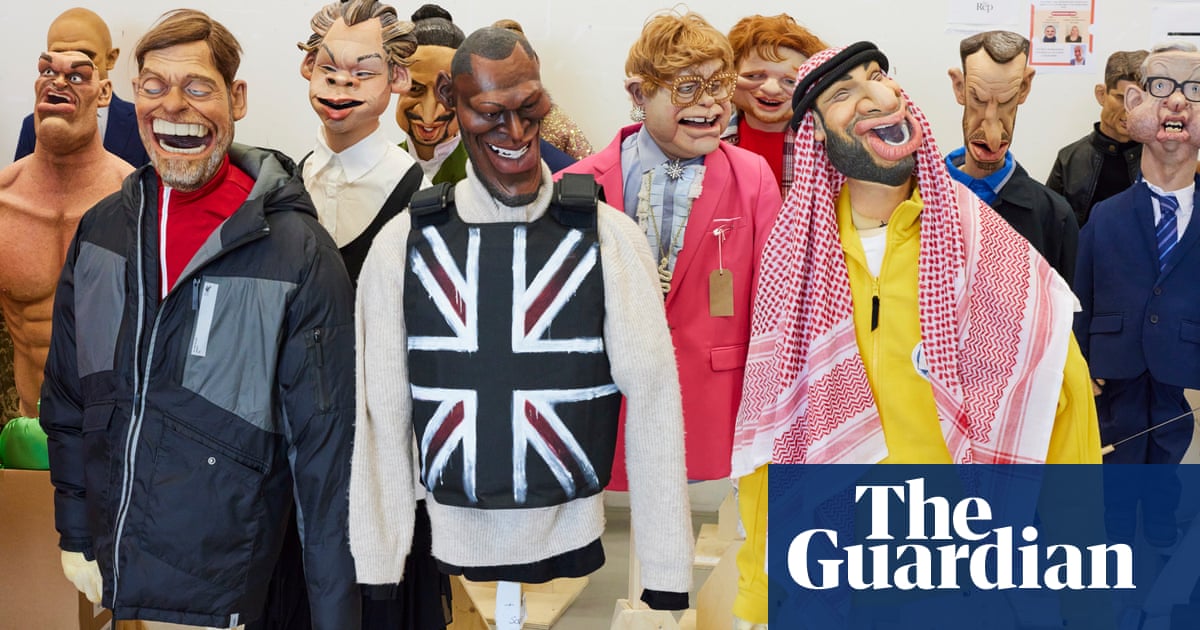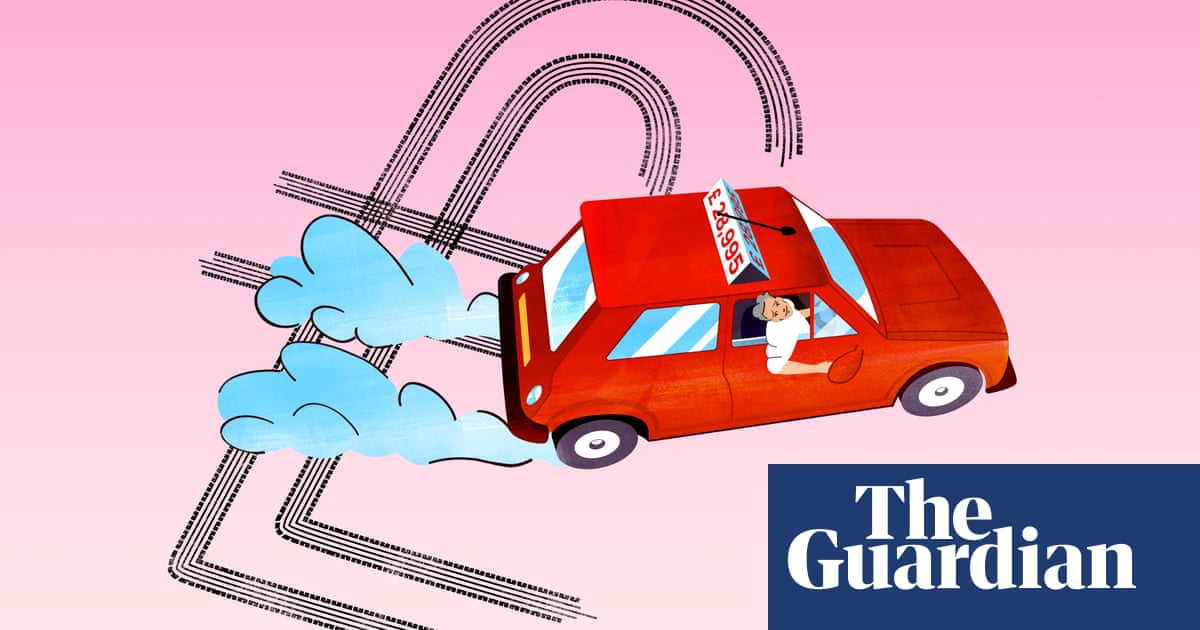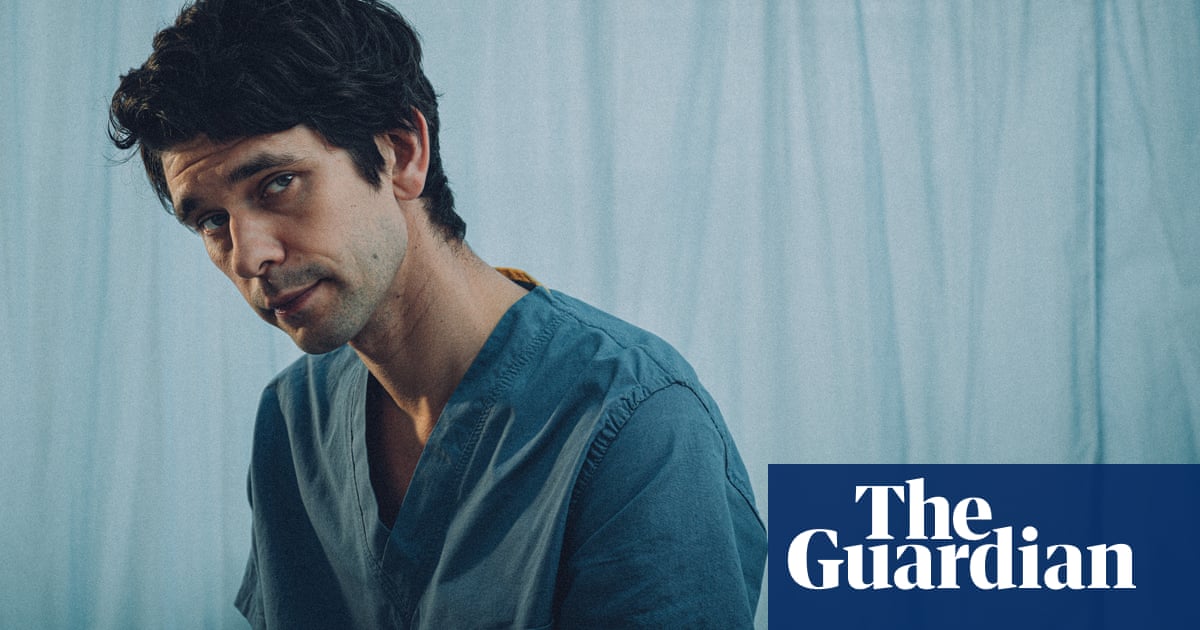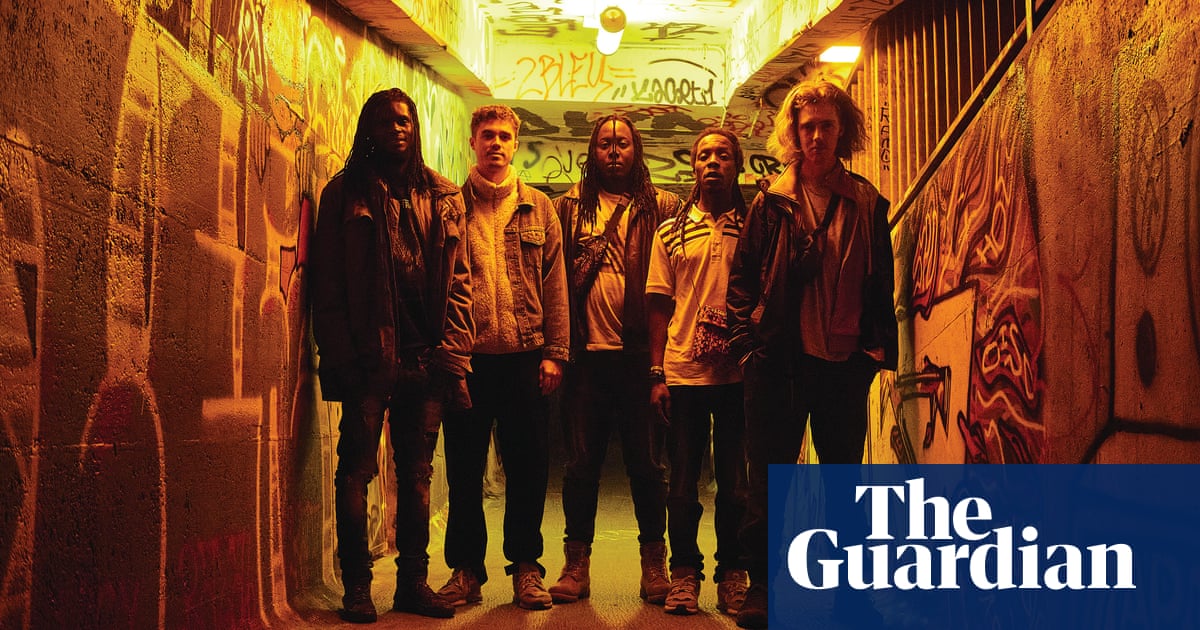
e wanted to win, to be honest. The nomination thing is sick, but we’re not really the nomination dons – we’re the winner dons.” I am talking to UK rap star Konan, of the chart-topping duo Krept and Konan, as the pair sit in the back of a people carrier outside a warehouse on an industrial estate in Birmingham, which doubles as their dressing room. This unglamorous location is, in fact, the nerve centre of the pair’s hit TV show, The Rap Game UK. The BBC Three show was nominated for a TV Bafta in the entertainment category, losing out to Strictly Come Dancing (“We’ll just go again next year,” says Konan) and proved a surprise hit in a landscape where TV music contests such as The X Factor now feel passé.
It is early September, and my set visit comes as production is restarting on TV projects across the country following months of Covid restrictions. The vibe is upbeat – it feels as if everyone is grateful to be out of the house and eager to work on something. The show’s co-host, DJ Target, has spotted a model Triceratops outside and is posing for a corny photo with his leg in its mouth. The rapper Wretch 32, this week’s guest mentor, is all smiles as he films pieces to camera. Konan groans as he opens the foil package that has been passed to him: pasta with cheese. “Do you want to share it,” he asks.
It is also the day before Tim Davie’s introductory speech as the BBC’s director general, in which he said the organisation “must move away from any sense of a ‘BBC type’,” instead working towards a vision that would “let this be a confident, open organisation that reflects and celebrates modern Britain”. The diverse production team behind the camera, as well as the host of contestants from around the country, suggest The Rap Game UK is ticking all the boxes.
However, box-ticking exercises do not create watchable television, and the BBC has struggled in the past to create a winning formula to entice younger audiences away from streaming services and the candy shop of options available online (anyone remember South Side Story?). Last year Sharon White, then the head of Ofcom, said: “The BBC is still a vital, valued part of British culture. But we’re concerned that a new generation is tuning out of its services … [it] must set out bolder plans to connect with younger viewers and listeners.”
Cue Krept and Konan, bona fide rap stars who have more than a decade of experience in the music industry and are still very much in the game. “We’re going from the studio to The Rap Game UK,” says Konan. “And Target’s on the radio right now,” adds Krept. “[We’re] actively within the music culture and have to make decisions within it. I feel they’ve made a perfect decision with who they’ve chosen to do the show.” Krept may sound cocksure, but his confidence is not unfounded, with the first series bringing in as mentors credible names in the music scene, such as the grime star JME and the rising Manchester MC Aitch.
Indeed, as Target adds, the show broke viewing records among audiences under 25, in part because the BBC “allowed us to do our thing”.
“They know that the youth is what’s going to be the future, so they need to tap into that,” says Konan. “Of course, they’re going to come to the people that are connected with the youth.” With Little Mix also fronting their own well-received singing contest for the broadcaster, going direct to artists seems a winning formula.
Despite the mandatory masks behind the cameras and temperature-taking on set, today’s challenge, which involved surprising contestants with a live orchestra, has galvanised the mood. The sound of the live strings alongside the furious delivery of Graft, who hails from Leeds, gives me a pang of nostalgia for the pre-Covid days of live musical performances. It is also a clear sign that this season is a big step up from the last one.
“I feel like we’ve got more confident people,” Krept says, “and they can mentally prepare for what they can expect for this season … in the first season, it’s new to us, it’s new to them, they don’t know what to expect.” Undoubtedly, an awareness of the game does give contestants an advantage, but having watched the first episode of series two, there can be no doubt that there is a stronger cast of contestants this time around.
While contestants in season one were endearing, it seemed unlikely that any of them had the qualities needed to be “the next big thing”. The new cohort have more sauce and look the part, from their wardrobes to their interactions with one another – and most importantly how they perform on the mic. Generally speaking, they are more established, up-and-coming artists, who seem to be a little further down the rap road, while remaining bright, fresh and hungry. Shogun, a churlish rapper from Scotland, is great value for money and no stranger to BBC Three (they made a video about him in 2017).
Graft and fellow contestant Lesia are still riding the wave of today’s surprise when I speak to them next to the set. “The days can be long, but I personally just embrace that,” says Lesia. “I love being here. I’m happy that I’ve got this opportunity.” Graft has a positive attitude towards the process, which he attributes to his previous life in football: “A lot of the things I’ve learned in football is what I’ve taken on into my music career, like discipline, hard work, self-belief and confidence.” Their energy is so keen, green and infectious that you can’t help but want to see them do well.
Last year’s winner, Kiico, went on tour with Krept and Konan, but there was some confusion about whether he had signed with their label, which was part of the prize. On the subject, Krept says: “I think basically because he said he’s not currently signed, people were like: ‘Oh, he didn’t sign at all,’ but he signed a single deal. So, he signed and as soon as his release was out, he’s back to being independent … I don’t know if people expected some major long-term 10-year record deal or something.”
As the competition is part of a BBC show, there are limitations on what can be offered. Target says the show is a springboard that gives its contestants “the exposure to then go on and do whatever they want afterwards”.
If this sounds a little cutthroat, it is pretty standard for reality TV and a competition of this kind. It is a bit like Love Island – the 50 grand isn’t the prize, the platform is – so it will be interesting to see if this year’s contestants are better equipped to maximise on the attention that being on the show brings.
The biggest bullet point on Davie’s list is the pressing matter of how to build commercial income. This is something Krept and Konan know a thing or two about. Over the past decade, they have built an empire through music, stadium tours and even a dessert spot in London called Crepes and Cones. This BBC show is just another jewel in their rap crown, and it has helped shield them from the devastation of losing out on live performances due to Covid.
“I’d be lying to you if I said the pandemic hit man like it has hit other people,” says Krept, “but that’s because we built our brand, and we’ve been able to make money in so many other ways, even during quarantine … that’s why we think it’s important that we teach these guys and let them know, build your brand, invest in yourself. It’s not just about music, it’s about being in the music business and thinking 10 years ahead. We’re always just thinking about the future.”
What are they hoping to achieve with the new series? “A Bafta,” says Konan, with a laugh. “We’re trying to get a Bafta this time.” “For me,” adds Krept, “more opportunities for the people that we get on board, and [to show TV-makers] that we need more of this stuff.”
The Rap Game UK airs weekly on BBC Three from 7pm, and on BBC One on Wednesday nights from 28 October












